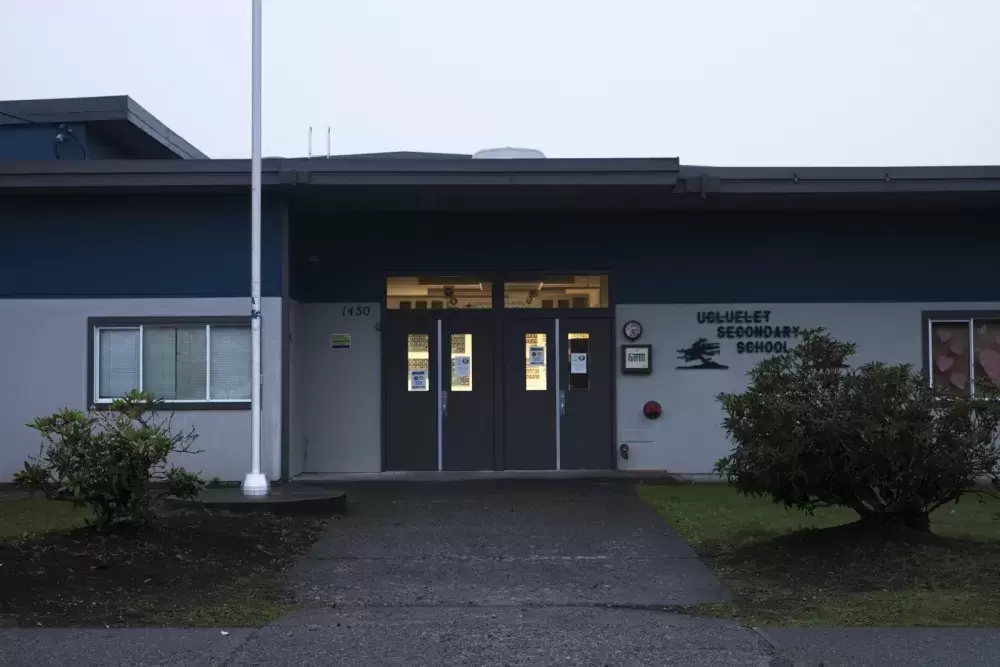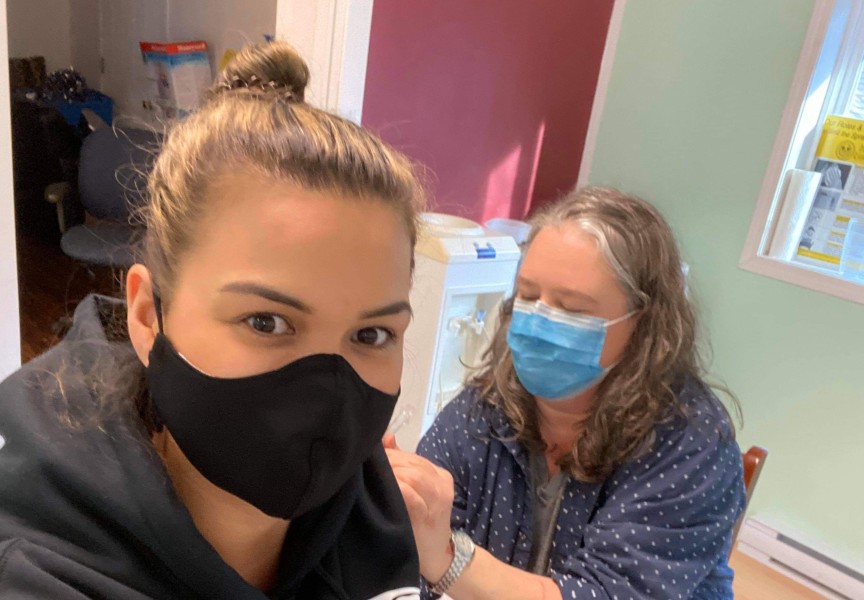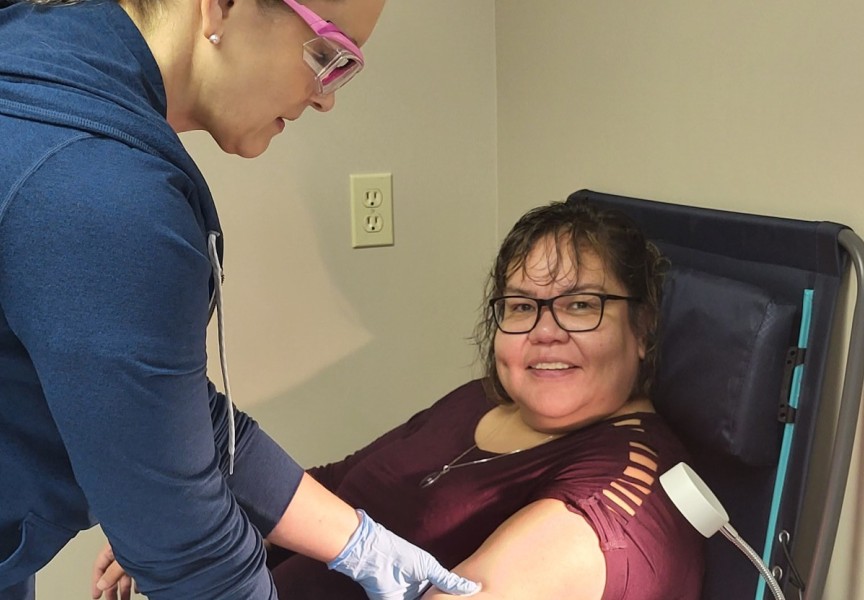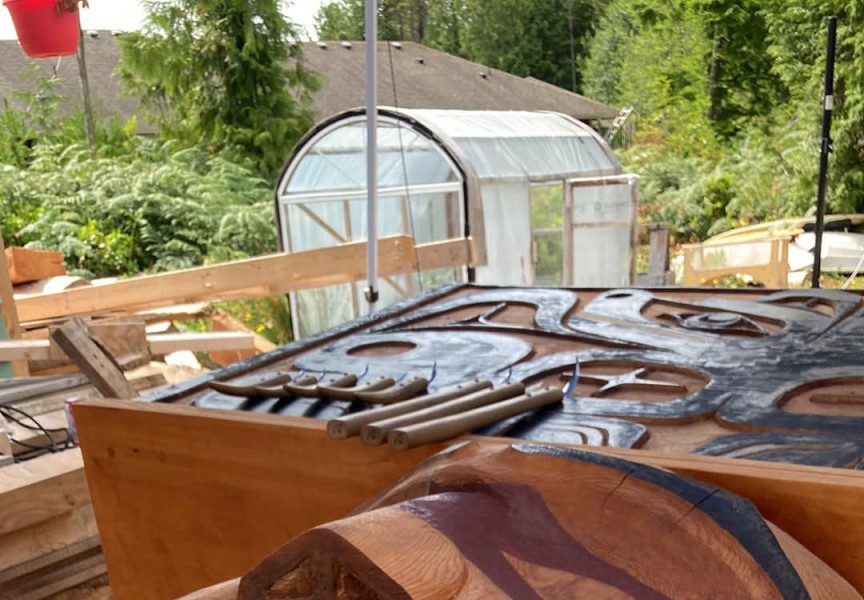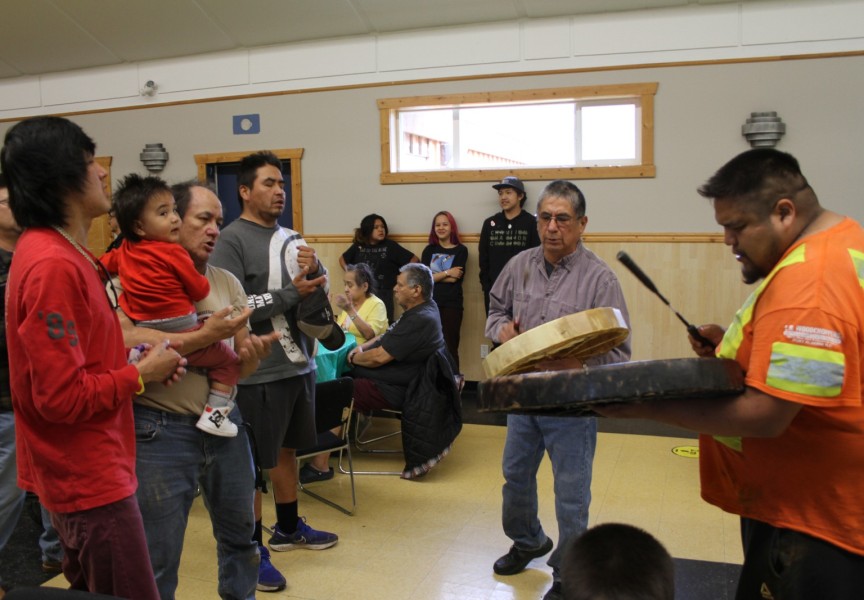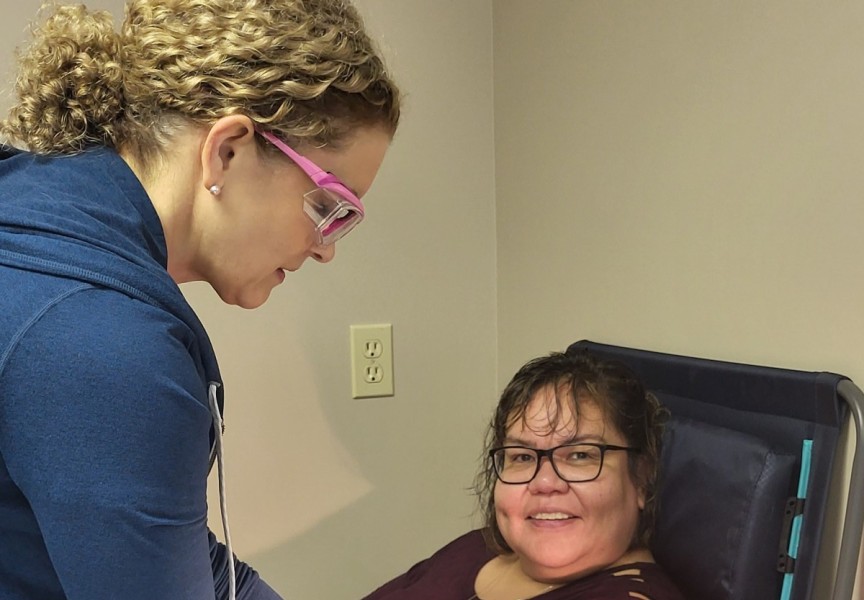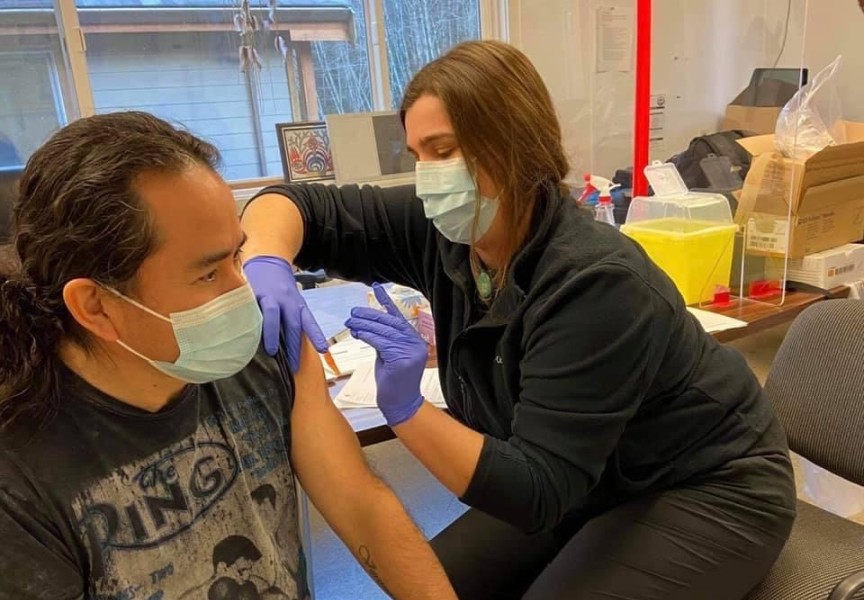As the new school year approaches, B.C.’s Ministry of Education said that students can look forward to the return of full-time in-person learning.
While mask requirements and other health and safety measures will remain in place, sports, music, and other extracurricular activities may resume.
"We know how excited students and families are about being back in school with extracurricular and sports programs and how important it is for children to be connected to their teachers and friends on a full-time basis," said Minister of Education Jennifer Whiteside, in a release. "We also know we can do this safely, even as the pandemic continues to present challenges.”
Following a provincial health order, staff and students in Grade 4 and up will be required to wear a mask in indoor spaces.
Younger students will be “strongly encouraged” to wear masks, according to the ministry.
Nancy Logan, principal of Haahuupayak Elementary School in Port Alberni, said many of the school’s safety protocols will carry over from last year, including the mandated daily health checks.
Although Logan said that students at Haahuupayak got used to wearing masks, it remained a challenge.
The masks make it more difficult for children to express themselves and to understand others, she said.
To acknowledge these concerns, Logan said teachers will have open dialogue with students at the beginning of the school year so they don’t feel alone in their struggle.
“We really have to have patience and kindness with each other,” she said. “When children are speaking, we need to show respect and do our best to hear and listen.”
Carol Sedgwick, principal of Ucluelet Secondary School (USS), echoed Logan and said, “it’s disappointing we’re back in a place where we’re all wearing masks.”
Despite that, she said she remains optimistic because “we’ve done this before” and for some, masks bring comfort.
In September 2020, the BC Centre for Disease Control (BCCDC) released a study called the Impact of School Closures on Learning, Child and Family Well-Being During the COVID-19 Pandemic.
The report expressed concern that the pandemic may be disproportionately impacting Indigenous peoples due to the “effect of ongoing racism, social exclusion, and structural violence on the health and well-being of Indigenous children, families and communities.”
It’s a sentiment reflected by Logan, who said that layers of intergenerational trauma from colonization and residential schools compounded the stress inflicted by the pandemic.
While Logan said she supports each family’s decision about sending their children back to school, she hopes to reassure parents about the safety and health precautions in place at Haahuupayak through one-on-one meetings.
The BCCDC study found that students were significantly impacted by remote education through uneven learning opportunities, increased stress and decreased connection.
“As children and youth are isolated from peers, teachers, extended families and community networks, mental health conditions may increase,” read the study. “School closures and physical distancing may result in increased loneliness in children and youth during the COVID-19 pandemic, correlated with mental health effects including anxiety and depression.”
Since schools reopened in September 2020, Vancouver Coastal Health said it has not recorded a significant increase in COVID-19 cases among school-aged children relative to other groups.
Continuing from last year, USS will run four semesters. Sedgwick said the shift from two semesters was made to lighten students’ course loads and to minimize movement between classes in the school.
Similarly, lunch breaks at USS will continue to be scheduled before noon to minimize students’ contact with the community. It’s a shift carried over from last year to protect students who access food from local restaurants and grocery stores, said Sedgwick.
After Haahuupayak transitioned to a four-day school week last year to help students and staff manage pandemic stress, Logan said the school will be returning to five days this September.
While it was “great” to have a three-day weekend to reboot, the additional half hour at the end of each day was too burdensome on students and staff, she said.
Children will no longer be segregated into cohorts this year, as this isn’t recommended by public health as a COVID-19 mitigation measure.
This change will allow teachers to extend their support to all students, rather than being limited to one or two classes, said Logan.
All mechanical heating, ventilation and air conditioning systems in schools will continue to be regularly inspected.
According to the ministry, provincial funding will be made available to update or replace these systems through routine capital programs. A total of $87.5 million has already been used to improve ventilation in schools across the province.
Logan said that funding through the First Nations Education Steering Committee and the First Nations Schools Association enabled Haahuupayak to hire a full-time intervention teacher to address the learning loss due to the pandemic.
By helping students with some of the basic skills, numeracy, and literacy, “it can really help them feel confident to rejoin their groups,” she said.
While the pandemic continues to alter the ways schools operate, Sedgwick said that like any other year, she looks forward to welcoming students back.
For educators, students and parents, the school year marks the beginning of a new year, she said.
“It’s very celebratory,” said Sedgwick. “We all look forward to seeing the students that we haven’t seen all summer and look forward to meeting the new ones coming in. [I’m] very optimistic.”

